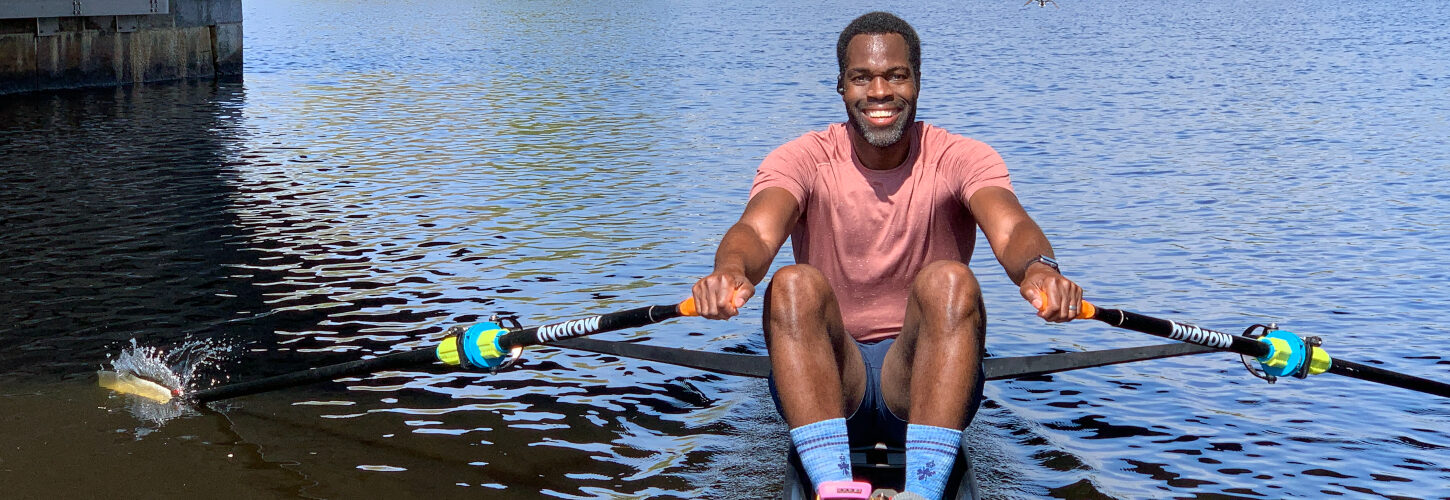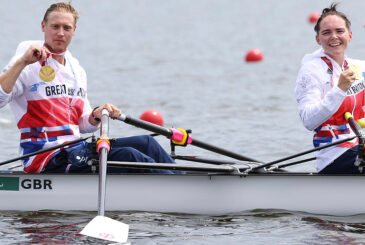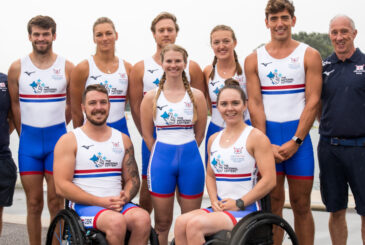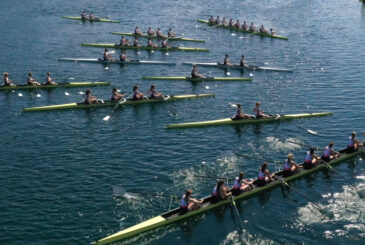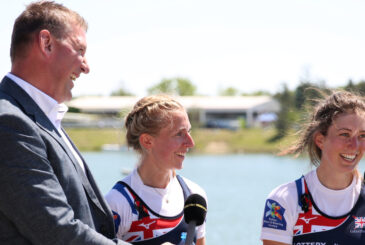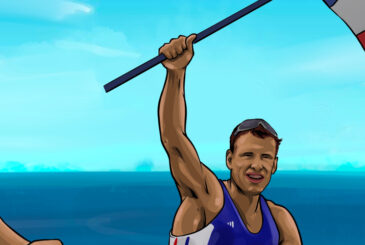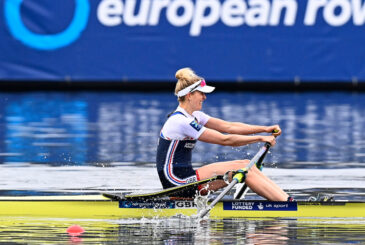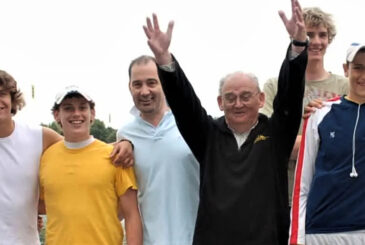Aquil Abdullah is a self-confessed rowing evangelist and passionate about spreading the benefits of the sport to everyone. Ros Satar finds out more
The first African-American male to qualify for the Summer Olympics in rowing at Athens in 2004, Aquil Abdullah was also the first African-American rower to win the Diamond Sculls at Henley Royal Regatta in 2000.
Yet at the time he would tell people that the only race he was concerned with was the one that he was in, although he jokes on our Zoom call: “It’s always cool to have a legacy.”
“I think about it and – once I’m just dust in the wind – people will someday be able to look and say, ‘Hell, yeah, there was this guy who did that for the first time.’”
A rangy athlete with a big beaming smile and cheerful demeanour, his route into a boat was somewhat unconventional. Growing up near the Potomac River in Washington DC, he always saw rowers out on the water, but his father played American football and he only came across rowing by chance.
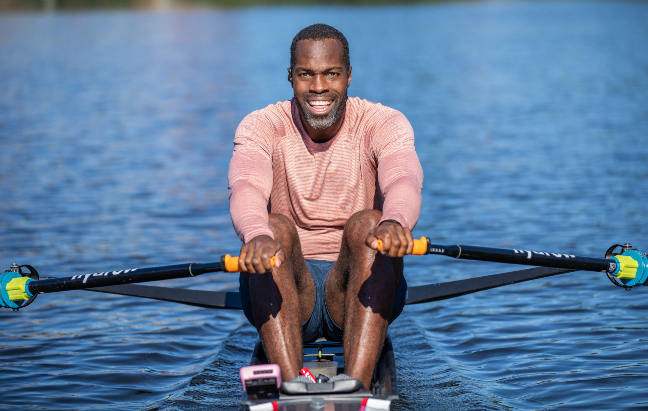
He says: “I’m looking around for sports to do that are going to keep me fit, but not require too much energy from me, so that I can enjoy my last year of high school.
“I had friends who were on the rowing team, and they had asked me for a couple of years to try out rowing,” he continued, joking that it had looked too easy!
“Then I went on the Concept2 and I was just going all-out and, with 1,500m left, and I am about to pass out, die – I need a bucket; I’m just like seeing the world closing in on me!
“That was the first thing that roped me in because I love challenges.
A highlight of his time [at Henley] was when Sir Steve Redgrave tried to teach him the rules of cricket!
“And then once I actually got the opportunity to be on the water, in sync with seven other guys… and then there’s this cute little deer jumping on Theodore Roosevelt Island as you row down the Potomac and, to me, that just struck a chord I hadn’t really experienced before.
“That really sung out to me, and that’s the moment when I fell in love with the sport.”
Agonisingly, he missed out on a spot for the 2000 Sydney Olympics by 0.33 seconds, but the experience helped him co-write the book Perfect Balance, where he rationalised the sacrifices, not only that athletes make, but also their families.
But from adversity comes triumph and in the same year he travelled to Henley Royal Regatta and won the coveted Diamond Sculls. A highlight of his time there was when Sir Steve Redgrave tried to teach him the rules of cricket!
However, after the 9/11 attacks on the US in September 2001, he would find himself struggling to travel to competitions and would be taken aside at airports simply because of his name: “As an athlete, speaking of all of the sacrifices that I made in my life to try to excel and to represent the country and the sport, that… was a hard thing.”
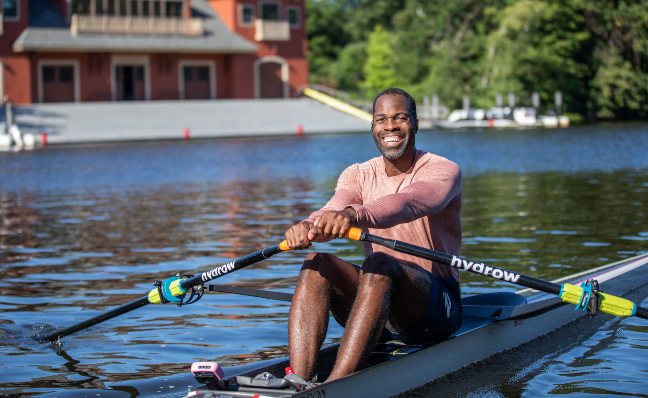
Now living in Boston, he is passionate about making the sport more inclusive and diverse. A member of the board of the National Rowing Foundation, he is working with them to figure out how they can address issues of diversity in our sport.
Most recently he joined the board of A Most Beautiful Thing – a foundation set up by Arshay Cooper to help transform more lives through rowing.
“Why is diversity important?” he says, then continues: “There’s so much that this sport has to offer – both in terms of relationships, in terms of fitness, in terms of networks. Fundamentally, I think, it does so much to help so many people that participate in the sport.”
“Hey, how’re you doing? Rowing is awesome – want to come on in and try it?”
Every Sunday, Aquil sits in on a call with a group of black rowers and coaches and from that, natural networking evolves.
On a broader level, he highlights the fantastic work that Steve O’Connor and team have been doing to bring rowing to the local community at Fulham Reach Boat Club here in the UK.
“One of the things that I think we, as a sport, can do better is to improve our community,” he says.
“And what I mean by that is to be more open, in the sense that I can go to the YMCA and start shooting a basketball; I can go out to a field and start kicking around a soccer ball. That community forms pretty quickly.
“People don’t look at me and ask: ‘Why am I here?’. I feel that sense of belonging once I tie up my boots and start kicking the ball around.
“So how do we make our sport more accessible to people, so that when they walk into a boathouse they don’t feel ‘othered’ right away? And I think that that’s the case for anyone walking into any club.
“I think that when we open our boathouse doors, it’s not: ‘What are you doing here, why are you here?’, it’s: ‘Hey, how’re you doing? Rowing is awesome – want to come on in and try it?’
“That right there is the hook.
“I’m a rowing evangelist. I love the sport. I love all the relationships that I’ve had in it.
“We have the ability to do good things – we have the ability to change lives.
“It is taking our love of the sport and putting that first. My message to rowers across the pond is: ‘Do good things and you can’t go wrong.’”
Look out for our Black History Month coverage during October.
Normally these articles are only available to British Rowing members but this month we’re making them available to everyone in celebration of Black History Month!
Find out how you can become a British Rowing member here.


